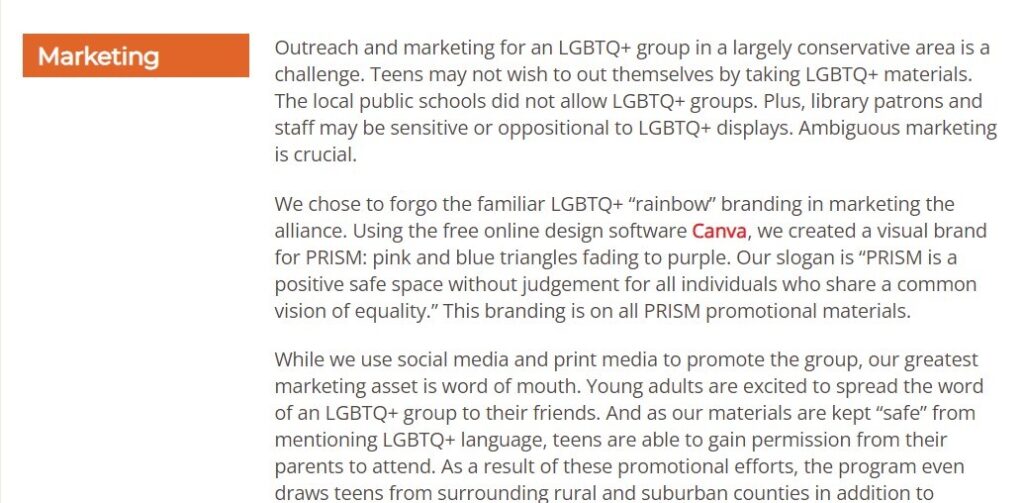Small-Town Librarians In Georgia Slip Drag Book Into Program For 6-Year-Olds
My small county is next door to a large university in Georgia, so I usually am not surprised by its periodic leftist infiltration. Most residents of this county, however, still view it as politically and socially conservative.
Because of this, many of them are experiencing a great deal of cognitive dissonance, because the county library scheduled a RuPaul biography as a story time in the children’s summer reading program.

RuPaul’s television show, “RuPaul’s Drag Race,” entailed grown men dressing up in women’s clothes and makeup mocking women with flamboyant stereotypes (where were the feminists?). It always had a sexual flair, and it was strictly adult entertainment.
Even drag queens have publicly said drag is not for children. In a 2020 YouTube video, drag queen Kitty Demure commented, “Would you want a stripper or a porn star to influence your child? … A drag queen performs in a nightclub for adults. There is a lot of filth that goes on. … I don’t think this is an avenue you would want your child to explore.”
Yet our county library presents RuPaul as a role model for young children. Who in the world thought this would be a good idea in semi-rural Georgia (or anywhere else)? Surely the “it’s not age-appropriate” argument would be a slam dunk every time.
We are not talking about what adults do in their private lives, after all. We are talking about children. Common sense should convince anyone that drag is not for young minds.
Common sense is not common in the institutions of the left, however, because to them, children are not children. In all things sexual, children are adults.
To our library, sixth graders are young adults. It is spelled out on the website. Since 11-year-olds are now adults, they can read or see almost anything, especially about sexual behavior.
With the RuPaul book, the story time description says all ages are welcome, but it is especially focused on 6-year-olds and above. When one librarian was asked if he would take his children to hear it, he quickly responded, “Oh, my children are grown.” Actually, they are in middle school.
An article for the American Library Association by a librarian from this same small-town Georgia area also outlines how the staff has removed the familiar rainbow branding from a program targeting LGBT teens. As the librarian describes, this will keep her marketing materials “safe” from parents who otherwise might not give permission for their children to participate. Why should she worry, though, if the children are actually adults?

This view of children explains almost everything we see now in our culture. To those on the left, children have every right to decide whether they are boys or girls because they are adults. Children can decide if they want to have mutilating surgery because, hey, they’re adults. They can’t take Tylenol at school without their parent’s permission, but puberty blockers are fine. Who are the parents to claim otherwise?
What about the protections we have had for years to keep children from being exposed to behaviors, pictures, and words that they are not mature enough to process? Alcohol, cigarettes, and R-rated movies are off-limits to minors because we know those are harmful to children. It seems the same standards would apply to sexual materials.
The difference is that these activities are not the focus of LGBT plans to normalize what should be adult sexual behavior. To get children exposed to and soon complicit in this agenda, you cannot call them children. Even if they are not sure if they should run to first base or third base in a T-ball game, it is fine for them to watch and read porn, “change their sex,” and be an active participant in unhealthy behaviors.
Meanwhile, as we watch kindergarteners being pushed to embrace their “sexual selves,” we see the infantilization of real young adults in college; 18- to 20-year-olds are provided safe spaces and trigger warnings, but it’s no-holds-barred for children. College students are protected from words and ideas that are simply too much for them to handle, but young children are encouraged to see and hear material that is confusing and alarming.
Why is that? And why is it only with sexual matters that all boundaries go out the door? Maybe the children are being desensitized and prepared for something. What might that be?
Dr. Pat Daugherty is a retired university administrator. A former president of Conservatives of Northeast Georgia and Eagle Forum of Georgia, she currently serves as editor of Eagle Forum’s weekly online newsletter, Eagle Forum Insights. She is a graduate of Clemson University, The Ohio State University, and the University of Alabama.





Comments are closed.